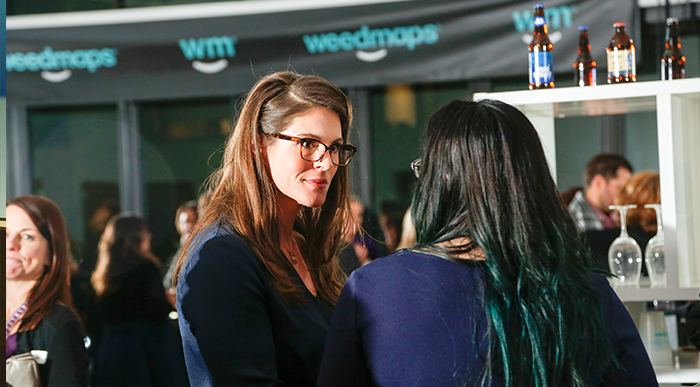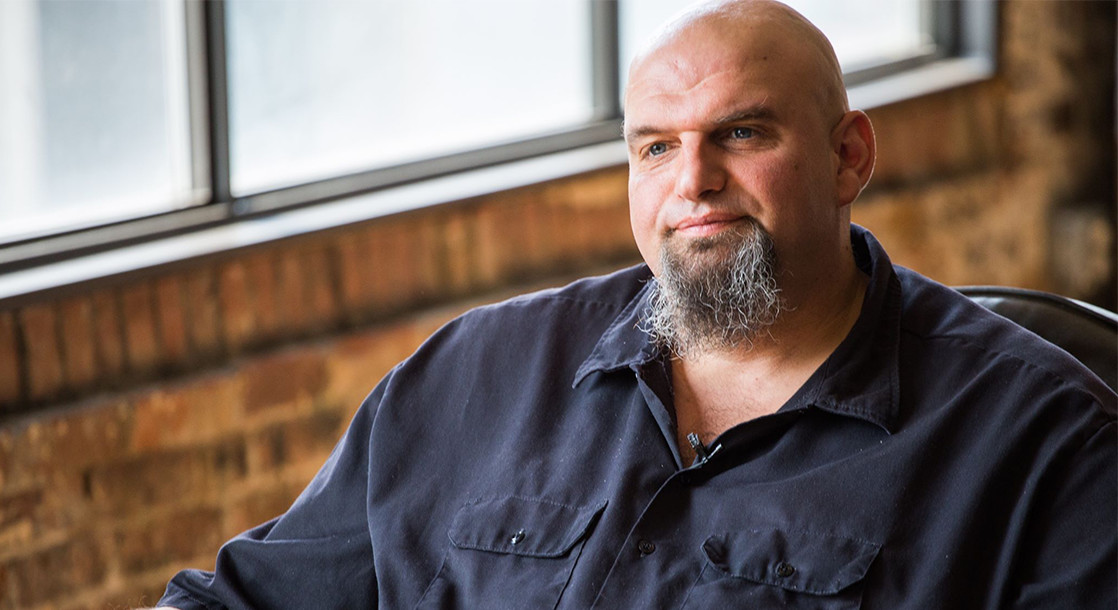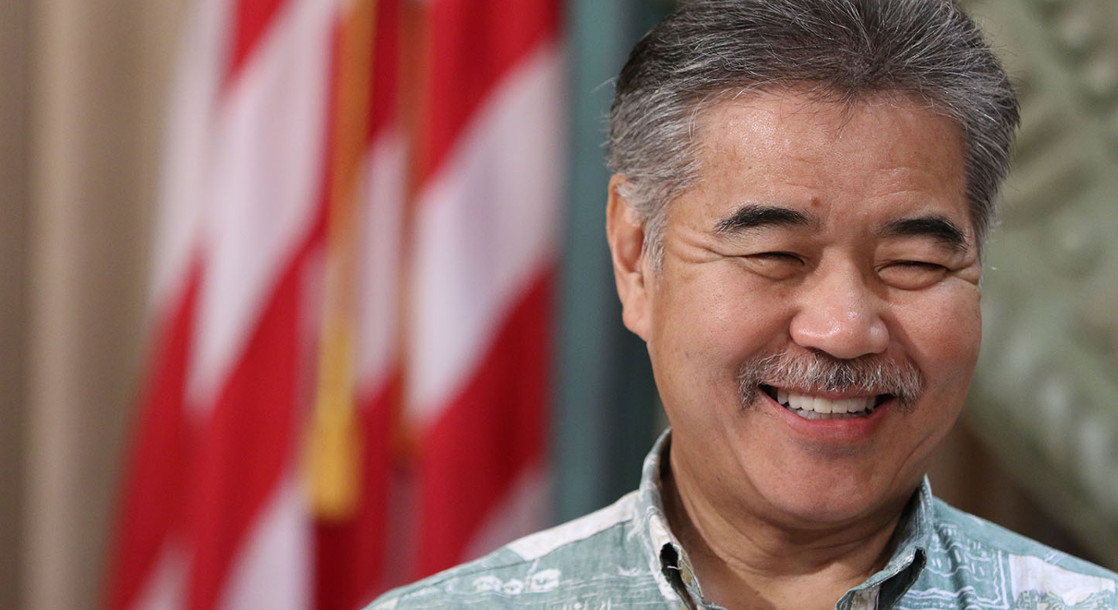Jane West, founder of Women Grow, mingles with entrepreneurs at the 2017 Women Grow Summit. Image via Christian Purdie
The third annual Women Grow Summit, under new leadership this year, continued to celebrate diversity in the cannabis industry while addressing the market’s social and financial barriers.
The organization, founded in 2014 by entrepreneurs Jane West and Jazmin Hupp, started as a way to unite women in an industry dominated by Caucasian men. Women’s issues, however, were just the half of it, as the industry also has a problem with disproportionate representation for people of color, the LGBT communities, the disabled, and, of course, the economically disenfranchised.
Many of the talks at this year’s Women Grow Summit provided insider industry advice for up-and-coming entrepreneurs. Other talks sought simply to inspire. Others gave women, minorities, and even men in the audience tools to conquer a rigid corporate world rife with subtle social cues and covert etiquette.
“Your teams are stronger if you have diverse backgrounds,” says Leah Heise, who became the new CEO of Women Grow in July 2016. “You’re going to build a stronger company by including people who are diverse than you are if you just have everybody with exactly the same mindset.”
Inclusion has been an obstacle even before Colorado launched its first legal weed sales in 2014. Part of that is because state regulations prevent people with criminal records from entering the industry. Ethnic minorities, on average, are more likely to have been convicted of prior offenses, especially when it comes to growing and selling weed.
Leah Heise, the CEO of Women Grow, speaking at the 2017 Women Grow Summit. Image via Christian Purdie
“They’re prevented from being in it,” explains Heise. “Anyone with a criminal record doesn’t get a foot in the door. All of that stuff needs to go away. We need to let people who’ve tried to build their lives off of this medication have the jobs that they’re best at.”
Additionally, starting a weed company isn’t cheap, either. It can cost millions of dollars in start-up cash to get an operation going, and even more money is required to adapt to the ever-changing regulatory landscape. In Colorado, there’s a running joke that new regulations get drafted every season. And it’s funny because it’s true.
Jane West still participates in Women Grow, although she’s since branched off to new business ventures. She notes the money needed to enter the industry is probably the single largest barrier keeping women and minorities from starting their own cannabis businesses. As more states legalize, the monetary requirements to get in the game are increasing, making it harder for the traditionally disenfranchised to jump in.
Regulators, says West, are “ensuring the only people who can do it have deep pockets and a ton of lawyers. In other words, Caucasian males.”
Heise echos West’s sentiment. She says the minimum seed money needed to get a grow going in her home state of Maryland is a whopping $12 million. “I feel like every new state that goes legal, the money required to start a grow gets higher,” she says. “It’s going to put out a lot of mom-and-pop shops.”
When West started Women Grow, she wanted to correct the injustices of the War on Drugs. Cannabis, she notes, is loved by everybody. Therefore, everybody should be making money off of legal weed.
“We have to have some African-American men who are crushing it in this industry, so people are like, ‘That guy is killing it! I want to be just like him!’” West exclaims. “We have to have women who are doing it. We need Indian women. We need Asian women. We need lesbians, transgender people—we just need more success spread around, so more people can see that it is possible to become successful in this industry.”
West says, to lead the way, she ensured her new company (aptly named “Jane West”), receives 85 percent of its investment from women and minorities. White men can still pay-to-play, but as a group, they max out at only 15 percent of the company’s stakes.
The Women Grow team strives for diversity and inclusivity in the nation's fastest growing industry. Image via Christian Purdie
However, progress isn’t an end. It’s a process. Even Women Grow isn’t immune to racial disparities, and Heise is aware of this. “We can do better with diversity,” she says. “We have been criticized as being the white women’s club. And that’s not what I want. I want to see diverse faces on my staff and leading my markets.”
To remedy Women Grow’s issues from within, Heise plans to practice what her organization has preached since its inception. The first step is reaching outside of the organization, to coordinate with other advocate groups such as the Minority Cannabis Business Association.
“We need to partner together so we can make a difference,” Heise concludes. “And we can do it.”











